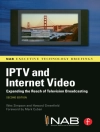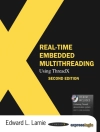Self-Organization in Sensor and Actor Networks explores
self-organization mechanisms and methodologies concerning the
efficient coordination between intercommunicating autonomous
systems.Self-organization is often referred to as the multitude of
algorithms and methods that organise the global behaviour of a
system based on inter-system communication. Studies of
self-organization in natural systems first took off in the 1960s.
In technology, such approaches have become a hot research topic
over the last 4-5 years with emphasis upon management and control
in communication networks, and especially in resource-constrained
sensor and actor networks. In the area of ad hoc networks new
solutions have been discovered that imitate the properties of
self-organization. Some algorithms for on-demand communication and
coordination, including data-centric networking, are well-known
examples.
Key features include:
* Detailed treatment of self-organization, mobile sensor and
actor networks, coordination between autonomous systems, and
bio-inspired networking.
* Overview of the basic methodologies for self-organization, a
comparison to central and hierarchical control, and classification
of algorithms and techniques in sensor and actor networks.
* Explanation of medium access control, ad hoc routing,
data-centric networking, synchronization, and task allocation
issues.
* Introduction to swarm intelligence, artificial immune system,
molecular information exchange.
* Numerous examples and application scenarios to illustrate the
theory.
Self-Organization in Sensor and Actor Networks will prove
essential reading for students of computer science and related
fields; researchers working in the area of massively distributed
systems, sensor networks, self-organization, and bio-inspired
networking will also find this reference useful.
เกี่ยวกับผู้แต่ง
Dr. Falko Dressler is Assistant Professor at the Department of Computer Sciences, University of Erlangen, Germany and, since 2004, Head of the Autonomic Networking Group. He has made many contributions in the area of quality of service in communication networks (IP, multicast, sensor networks), network security (intrusion detection, high-speed monitoring, IP traceback), ad hoc wireless sensor networks (communication paradigms, congestion control), and bio-inspired networking (lessons learnt from molecular biology to be adapted to communication networks). His areas of expertise include distributed systems and communication networks, self-organizing autonomous sensor/actuator networks and bio-inspired networking.












